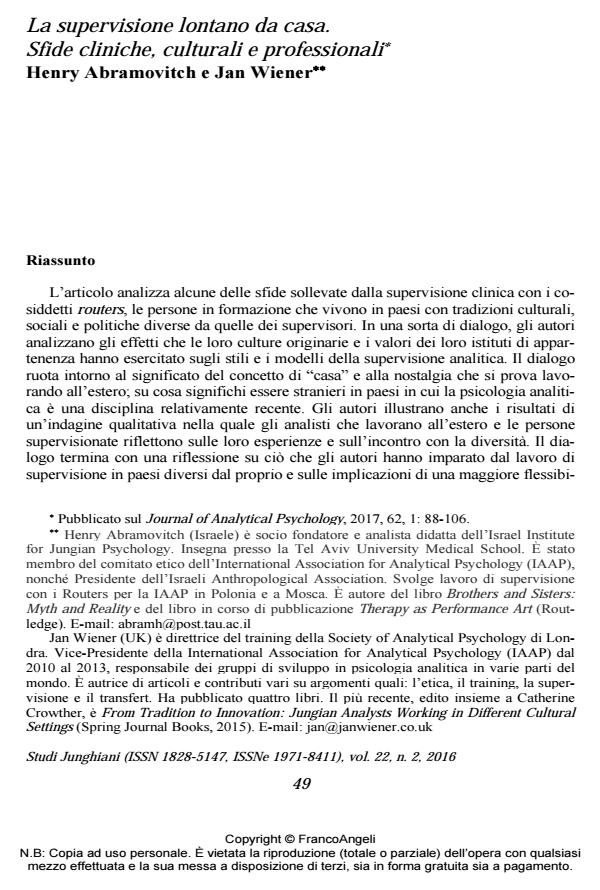Supervising away from home: clinical, cultural and professional challenges
Journal title STUDI JUNGHIANI
Author/s Henry Abramovitch, Jan Wiener
Publishing Year 2017 Issue 2016/44
Language Italian Pages 19 P. 49-67 File size 210 KB
DOI 10.3280/JUN2016-044005
DOI is like a bar code for intellectual property: to have more infomation
click here
Below, you can see the article first page
If you want to buy this article in PDF format, you can do it, following the instructions to buy download credits

FrancoAngeli is member of Publishers International Linking Association, Inc (PILA), a not-for-profit association which run the CrossRef service enabling links to and from online scholarly content.
This paper explores some challenges of supervising clinical work of trainees, known as "routers", who live in countries with diverse cultural, social and political traditions, and the analysts who travel to supervise them. It is written as an evolving dialogue between the authors, who explore together the effects of their own culture of origin, and in particular, the legacy and values of their own training institutes on the styles and models of analytic supervision. Their dialogue is framed around the meaning of home and experiences of homesickness for analysts working away from home in an interactive field of strangeness in countries where analytical psychology is a relatively new discipline. The authors outline the findings from their own qualitative survey, where other supervisors working abroad, and those they have supervised, describe their experiences and their encounters with difference. The dialogue ends with both authors discussing what they have learned about teaching and supervising abroad, the implications for more flexible use of Jungian concepts, and how such visits have changed their clinical practice in their home countries.
Keywords: Bi-directional learning, cultural complexes, home, homesickness, models of work, research, supervising away from home, supervision.
Henry Abramovitch, Jan Wiener, La supervisione lontano da casa. Sfide cliniche, culturali e professionali in "STUDI JUNGHIANI" 44/2016, pp 49-67, DOI: 10.3280/JUN2016-044005